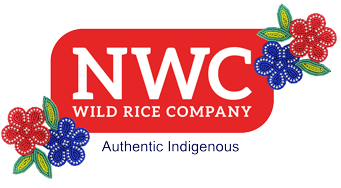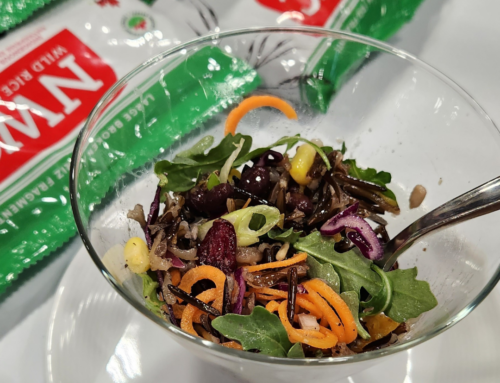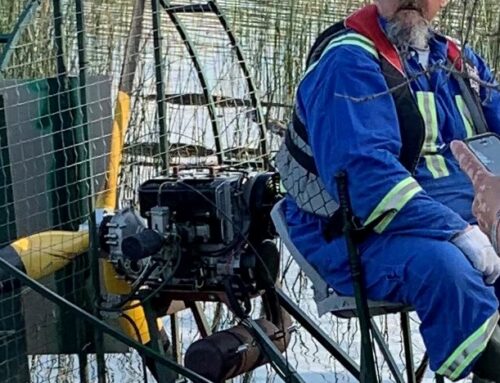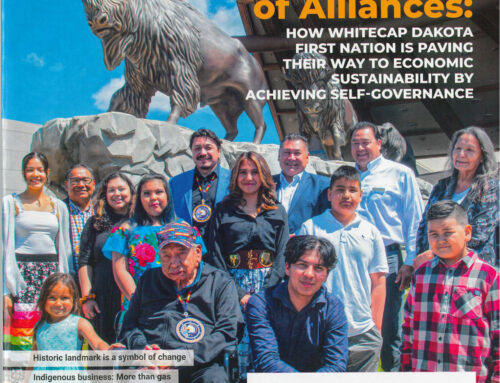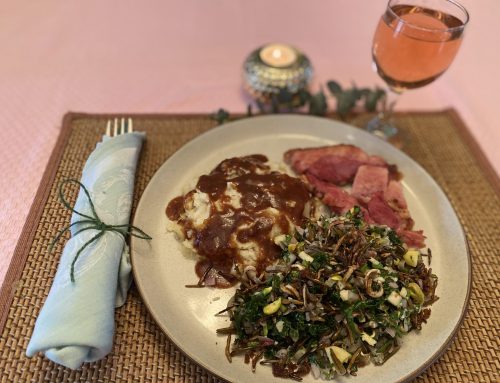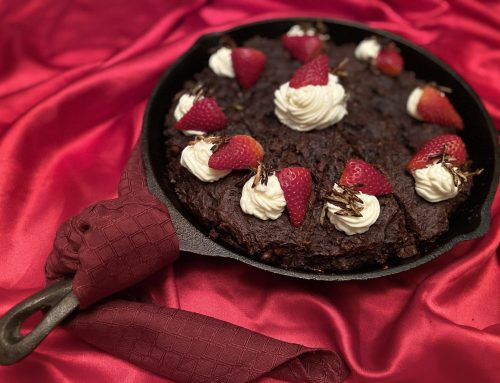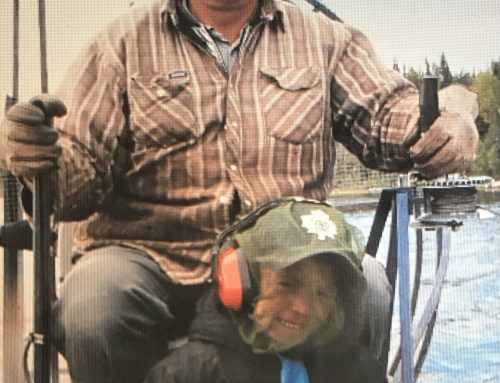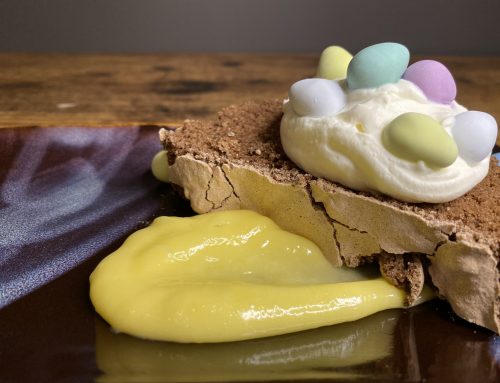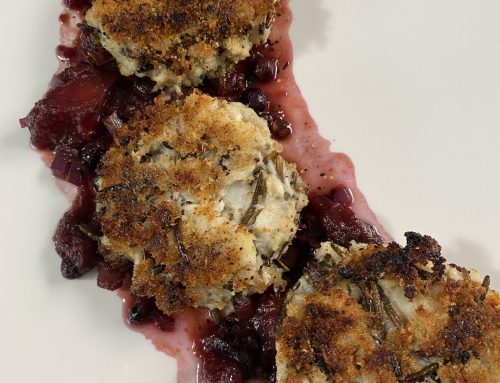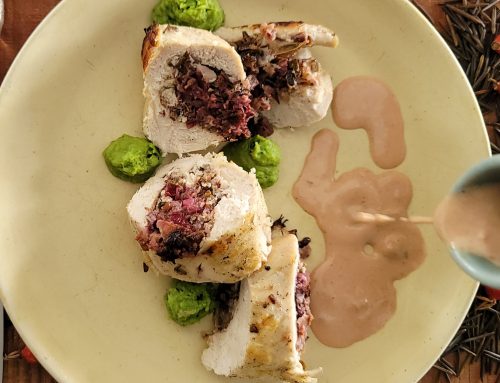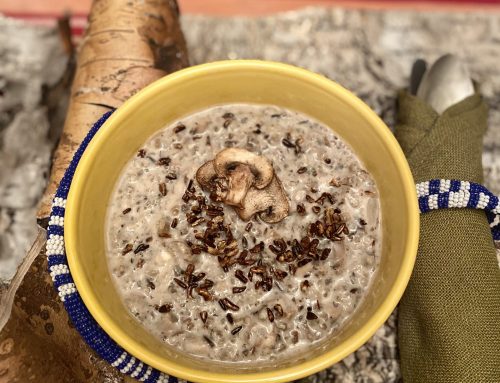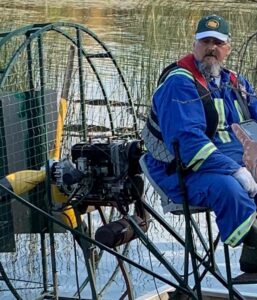
Bradlee harvesting on boat
Bradlee Caisse passed away suddenly in January of 2021. His widow, Patricia Caisse, shared her memories, stories, and feelings for this tribute.
Bradlee was a kind, gentle man. He had integrity and lived his life to the fullest. His passion for the environment, the north, and the wild rice industry was something to admire. Our family was very important to him; he loved his children and grandchildren very much and always wanted the best for each of them.
To many, Bradlee was a friend, a brother, a cuzzin, but to me, he was my everything.
Thank you to everyone who has helped me get through these last months and get Brad’s wild rice harvested. Thank you to NWC, Nap Gardiner, James Dennett and Wehkwas Durocher. I would also like to thank the people who harvested the wild rice for us – Terrance Iron and Albert Lariviere
Here are some of my thoughts and memories:
Bradlee was a second-generation wild rice grower and harvester. He grew up in Halfway Lake, where his Dad was a fisherman, a trapper, a hunter and eventually a wild rice harvester. That is the way of life he grew up with, the way he planned to return to. The way of life he loved and shared with me, and his children and hoped to share with his grandchildren.
Brad left the north to find work and his journey took him into trucking. He was in the trucking industry for over 30 years. Working his way from a driver to eventually being an Owner Operator with Northern Resources Trucking. It was his way of still being connected to the north. He had a successful company that he named Ti Ma Gun Trucking, and he loved when people would ask him what that meant. With his quick smirk, he would explain that it meant ‘poor trucking’, ‘not too poor – yet”!
Bradlee loved the north and the environment and was passionate about the wild rice industry. He worked hard for what he had, and he took care of anything he had. Bradlee started with nothing and built up to what we have now. All the while protecting the environment.
In the wild rice harvesting industry, he saw the gap between what growers got paid for a pound of rice and what it was sold for in the store. It is a huge gap when you consider the amount of work that goes into wild rice harvesting and that they were not getting fairly compensated for the rice. Bradlee’s dream was for a processing plant to be built on the West Side and to sell our rice own rice. He may not have seen a processing plant built, but he saw that it was soon to be a reality and was proud to be a member of NWC Wild Rice.
Bradlee wanted to keep the wild rice industry alive and for growers to be fairly compensated for their work. He knew that ‘our’ rice is a worldwide commodity, and he was proud to be a small part of it.
Bradlee had his own way of harvesting the rice, which might have differed from others. It was his way, that he enjoyed and had practiced for a long time. It was the way he believed was best for his wild rice and the water it grew in. He believed in the rice being organic and harvested in an organic way. Part of our harvesting practice was to always make an offering to Mother Earth – to thank her for what she would give us.
Fall was our favorite time of year to be in the north. He enjoyed picking blueberries, harvesting wild rice, and hunting. This time was about being with family and friends and visiting. Bradlee , normally was always in a hurry, but when he was in the north doing his favorite things, he was never in a hurry. He liked to take frequent breaks and visit with people sharing stories and laughs. Bradlee loved to laugh and to make other people laugh as well. He would tell stories from kayas.
He loved the wild rice industry to the point that he would talk about it constantly! It could be minus 52, and he would be talking wild rice and plans and how he would do things differently. It was his passion. He was a thinker and thought a lot about how he would do his wild rice work. Especially ways to make it easier for us to do as we got older. I had the opportunity to share some of Brad’s ideas with people from Sask PolyTech. They were very impressed with his ideas for modifications to his harvester and a replacement motor in the boats. They were impressed with how he could compare what my dad used in traditional land-based farming and apply it to his wild rice operation. I was always proud of him, but to have these people validate his ideas made me even prouder.
Bradlee talked to people all over the world who built airboats – California, Ontario, BC – and they loved talking to him, he would be on the phone for hours talking with people. This would be after I spent hours on the internet researching for him. He had me speak to a guy who built airboats in Ukraine, I had to get someone translate Ukrainian for us! There probably isn’t a private airfield in Canada and parts of the U.S. that Bradlee hadn’t spoken to someone about motors. He sought knowledge and shared it with others he thought would benefit from what he learned. He always helped people no matter who they were.
People who met Bradlee remembered him. He knew people from Black Lake to Lebret to Cumberland House and Onion Lake. If he had met you, he would have had no problem going up to you and introducing himself. He would remember everything that you had told him about yourself. The next time he met you, he would ask about you and your family.
Brad had a hard life, but he worked hard every day and NEVER forgot where he came from. We had a good partnership and built a good quiet life together. We were looking forward to ‘moving home,’ growing old together, and living off the land he loved so much. I know he is watching over all the people he loves because that was who he was.
I hope to see a Processing plant built on the West Side one day – I know Celine will do her best to create Brad’s legacy.
This is one of Brad’s favorite quotes and is how he lived his life:
“When the last tree has been cut down, the last fish caught, the last river poisoned, only then will we realize that one cannot eat money.”
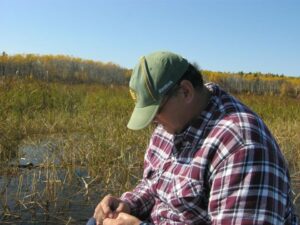
Bradlee checking wild rice
